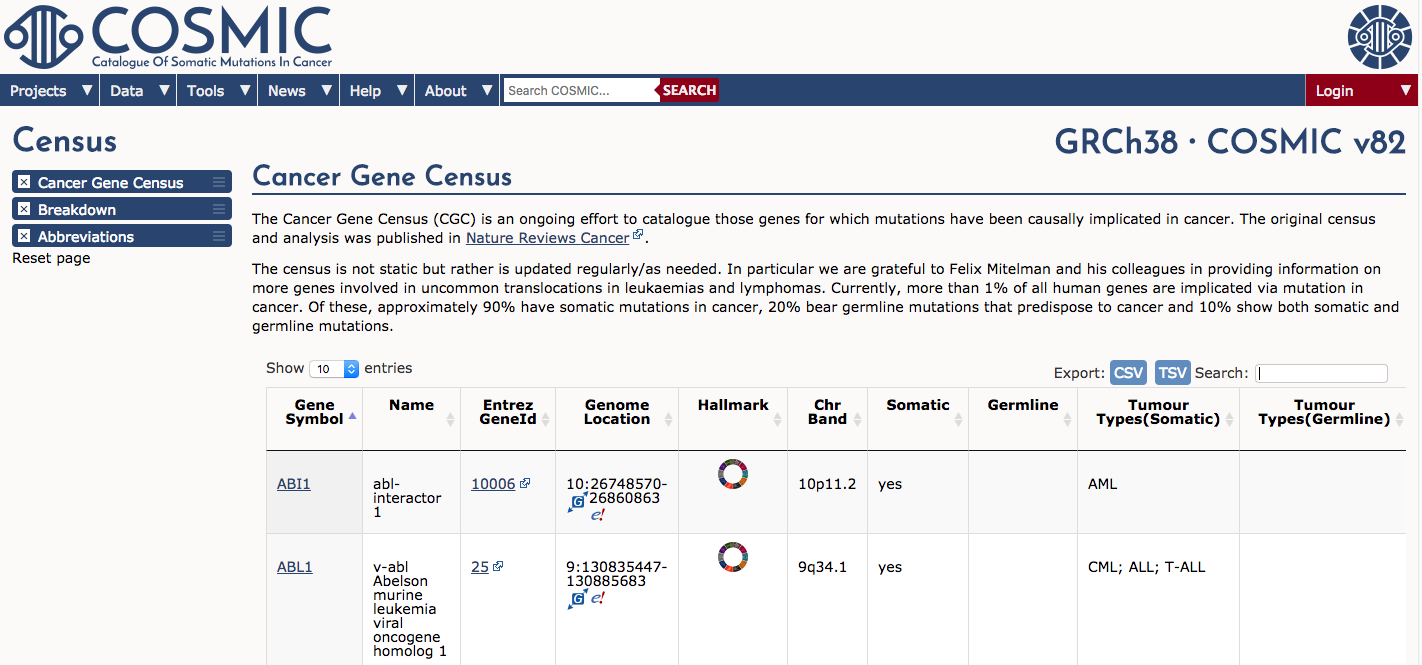For The Latest Medical News, Health News, Research News, COVID-19 News, Pharma News, Glaucoma News, Diabetes News, Herb News, Phytochemical News, Thailand Cannabis News, Cancer News, Doctor News, Thailand Hospital News, Oral Cancer News, Thailand Doctors

The study characterises the increasing understanding that many genes have multiple different roles in different cancers. This paves the way for improvements in personalised medicine, and building combinations of anti-cancer drugs for any given set of genetic functions or mutations.
To address this, researchers working with the Catalogue of Somatic Mutations in Cancer (COSMIC) have created the Cancer Gene Census. While the COSMIC database characterises over 1,500 different forms of human cancer and types of mutations, the Cancer Gene Census describes which genes are fundamentally involved and describes how these genes cause disease.
For the first time ever, functional changes to these genes are summarised in terms of the ten Cancer Hallmarks—biological processes that drive cancer. Mutations in some genes lead to errors in repairing DNA, whereas mutations in other genes can suppress the immune system or promote tumour invasion or spreading. Across the 700 genes in the Cancer Gene Census, many have two or more different ways of causing cancer. These are often different and sometimes contradictory depending on the tumour type, and are all described in this single resource.
The scientists have manually condensed almost two thousand papers to draw together strong evidence of a gene's role in cancer, and describe which genetic functions go wrong to cause cancer. This knowledge is crucial to developing new therapeutics. When combined with the COSMIC database, it is now possible to characterise exactly which cancers are impacted by which genes, and which mutations are likely involved.
Cancer is a genetic disease, and mutations in DNA can affect cells so that they are able to grow uncontrollably. Cancer can form in over 200 parts of the body and hundreds of different genes are known to be involved. To understand individual cancers and design specific treatments, many complex details need to be combined. However, this information is often spread out across thousands of different scientific publications and public databases.
"Scientific literature is very compartmentalised. With the Cancer Gene Census, we're breaking down all those compartments and putting everything together to reveal the full complexity of cancer genetics. This is the broadest and most detailed review of human cancer genes and their functions ever created and will be continually updated and expanded to keep it at the forefront of cancer genetics research," says Dr. Zbyslaw Sondka, the lead author on the project from the Wellcome Sanger Institute.
"The combination of the Cancer Gene Census with COSMIC will enable researchers to investigate individual mutations and try to find good targets for anti-cancer drugs based on the actual processes involved. It will also allow biologists and pharmaceutical scientists to see patterns and
target particular pathways with anti-cancer drugs, not solely single genes. We hope that this resource will help to make precision medicine even more precise," says Simon Forbes, senior author on the paper who heads COSMIC, at the Wellcome Sanger Institute.
Some genes have a particular function in one type of cancer cell, but a completely different and opposite mode of action in another cancer. This affects what drugs would be effective against each individual cancer. By bringing all the information together, the Cancer Gene Census makes it easier for researchers to see all the different functions of each gene and target only the desired effect. This could also help delay drug resistance.
"One of the biggest problems in treating cancer is the emergence of drug resistance. By showing the similarities of functions across different genes, the Cancer Gene Census could help reveal which combinations of drugs could be effective in any particular cancer and possibly prevent some cases of resistance. This is a fabulous resource and could underpin precision oncology development," says Dr. Ian Dunham, an author on the paper from Open Targets, a public-private partnership that uses genetics and genomics data for systematic drug target identification and prioritisation.
Zbyslaw Sondka et al. The COSMIC Cancer Gene Census: describing genetic dysfunction across all human cancers, Nature Reviews Cancer (2018). DOI: 10.1038/s41568-018-0060-1